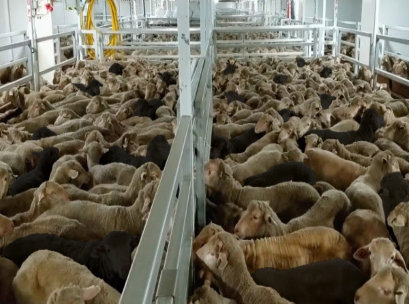



Article by: Hari Yellina
Livestock producers have demanded answers on the Australian Labor Party’s policy on the export of live animals, notably sheep, with less than three weeks until the federal election. Anthony Albanese, the Labor Party’s leader, officially announced his campaign in Perth yesterday. There was no mention of agriculture or animal welfare during the official launch. Prior to the 2019 federal election, Labor pledged to end live sheep exports. York Sheep farmer Peter Boyle, who raises animals for the live export market, believes that shadow agriculture minister Julie Collins was deliberately ambiguous on the subject of sheep exports during and before the election campaign.
Mr Boyle added, “I’d say she’s going to phase it out, but she won’t tell us.” “She’ll be vague until after the election, after which she’ll do whatever she wants because she didn’t commit to anything. That looks to be the direction things are heading “he stated Ms Julie Collins said Labor had “no plans to modify the live export of cattle” from Western Australia in a statement to the WA Country Hour. The situation is less clear when it comes to sheep exports. Ms Collins stated that Labor backed the Morrison government’s draught report, which suggested that the current moratorium on live sheep shipments to the Middle East be maintained during the Northern Hemisphere summer. She also stated that she would issue a wide animal welfare policy in the following weeks.
Will Evans, the chief executive of the Northern Territory Cattleman’s Association, is eager to read this policy. “We’d like to see these things as soon as possible,” Mr Evans said, “so we can truly get an informed picture of what’s going to happen if there’s a transition to a Labor government and at the very least offer us the chance to select between two alternative policy portfolios.” “We’ve had a few Labor figures call out to us, reiterating their support for the northern trade and the cattle traffic out of Darwin. “I’m not sure if it means there will be an announcement on sheep in Western Australia or not; I’m not sure.
“I believe Labor should spend the money to tell us exactly what they are thinking about agriculture and offer us the opportunity to have an informed conversation before the election.” Following the federal government’s ban on live export to Indonesia in 2011, many pastoralists, such as Michael Thompson of Mundabullangana (Munda) Station, diversified their markets to limit their vulnerability to the live export trade. Mr Thompson is leery of restoring Labor to power because of the memories of the then-Labor government’s decision, which was declared unlawful by the Federal Court in 2020. “Labor has demonstrated in the past that they will do everything it takes to maintain themselves in power,” Mr Thompson added.
“I’m not saying [Labor] wouldn’t, but I wouldn’t put my faith in them.” “I just don’t have to worry about it right now since I’m in a drought.” Mr Thompson said it was crucial for voters to be aware of the expense of the export industry’s class action against the federal government, which is projected to cost more than $800 million. In reaction to the disturbing film of the Awassi express, Federal Agriculture Minister David Littleproud stated his administration has enacted sector reform. He believes the Labor Party will oppose live export. “They don’t want to be honest with Western Australians because Western Australians will bear the brunt of this,” Mr Littleproud explained.
“It’s the entire supply chain, and they’re not telling Western Australians the truth. They are not staring them in the eyes and saying, “We will support you.” Alannah MacTiernan, the state government’s Minister for Agriculture in Western Australia, stressed that local processing was just as vital as live export. “I believe the future is quite promising. However, we must adopt a truly positive attitude toward animal raising, as animal welfare is critical to the industry’s long-term viability “Ms. MacTiernan expressed herself. “We are witnessing that live export plays a role at this time, but it is by no means the major game for this market.”